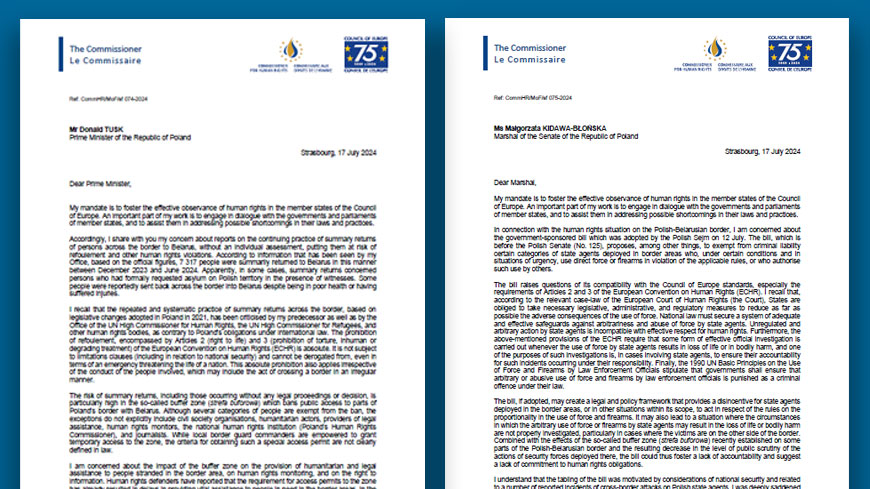The Council of Europe Commissioner for Human Rights, Michael O’Flaherty, published today two letters sent on 17 July to the Prime Minister and the Marshal of the Senate of Poland concerning the human rights situation on the border with Belarus.
In his letter to the Prime Minister, the Commissioner expressed concern about the reported continuing practice of summary returns of persons across the Polish-Belarusian border, in contradiction with Poland's obligations under international human rights law, and the human rights consequences of the so-called buffer zone established on part of that border. He called on the Polish authorities to “ensure that all laws and practices in connection with the situation on Poland’s border with Belarus comply with relevant Council of Europe human rights standards”.
In his letter to the Marshal of the Senate, Commissioner O’Flaherty expressed concern about the bill proposing to exempt from criminal liability some state agents deployed in border areas who, under certain conditions and in situations of urgency, use direct force or firearms in violation of the applicable rules or who authorise such use by others. For the Commissioner, “the bill, if adopted, may create a legal and policy framework that provides a disincentive for state agents deployed in the border areas, or in other situations within its scope, to act in respect of the rules on the proportionality in the use of force and firearms”. Combined with the effects of the so-called buffer zone and the resulting decrease in the level of public scrutiny of the actions of security forces deployed there, the bill could thus “foster a lack of accountability and suggest a lack of commitment to human rights obligations”. The Commissioner called on members of the Senate to refrain from adopting the bill in its current form.
While acknowledging the seriousness and complexity of the tasks faced by the Polish authorities in managing migration at the border, the Commissioner stressed that “the invocation of national security cannot serve as a carte blanche to adopt measures that raise questions of compatibility with human rights standards”.



